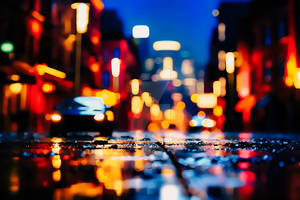ShopDreamUp AI ArtDreamUp

~ Special Supporter ~
Your support would mean a lot to me :)
Here you will find your picture, illustrations and much more, everything can be downloaded freely.
Support my work by contributing to my tip jar every month.
$1/month
Updates and News
Hey, everyone! Scarlet aka Azuri here!
Guess what? I'm not dead. For those of you on why I haven't been able to post anything else on my profile page.
Well, sit back,relax, grab a snack & you shall hear the tale of my troublesome story.
Let's start with the elephant in the room: Dark Rising.
Yes, I'm still working on the story as we speak, but sometimes life has its moments. I was sick, stressed, had a MAJOR WRITERS BLOCK, and is still trying to survive my college experience. So please bear with me just a little bit longer as I finish up the first chapter.
Second, I barely have time to relax, maybe draw. I'm right now working on designin
Understood-Accepted's Contest Promotion
:tighthug: Our "Creed" :tighthug:
Hello, you've reached a quiet place, a place where you can bare your heart or simply share your soul. We are all like you - problems and pain haunt and hurt us as they do you. We don't all have the same things that consume us, but still we understand your ghosts and the trouble you face daily hurt you deeply, as ours do to us. We know pain. We try help you face it. If you remember one thing about this place, remember this: No matter what you are living or have lived through, you are accepted.
YOU. ARE. ACCEPTED
:thumb331662136::thumb331662136::thumb331662136:
Welcome to Understood-Accepted's
:thumb20109
MagicalJoey's Anthology Contest III
Why hello you lovely person checking my hair for lice...or maybe it's the skull fracture I got from the drama over the last few weeks you're looking for? Well, whatever it is, put down your lice comb or suture kit and listen up...because I have a treat for you. What type of treat you ask? Well, while I don't have candy, cake or oreos, I do have a contest. Contest? Did I say contest? Why yes I did! You've arrived at the wonderful home of what I like to term:
Why, Jo, isn't this the contest you host annually in April/May to celebrate your birthday? Yes, it is...but because I'm a sucker for punishment and have a bit of free time I thought - why
Poetry Critique Workshop-thing
WELCOME TO
How it Works
:bulletred: Sign up via note to MagicalJoey (https://www.deviantart.com/magicaljoey) or My-Soul-Bleeds-Ink (https://www.deviantart.com/my-soul-bleeds-ink) - NB: Signing up is a binding contract to enter.
:bulletorange: Write a short (no more that 100 lines, no less than three) poem on any topic you choose - NB: Writing a poem means you agree to critique someone elses.
:bulletyellow: Submit the poem to the Critique Challenge 2017 folder.
:bulletgreen: MagicalJoey (https://www.deviantart.com/magicaljoey) will put your poem into a list.
:bulletblue: After the allotted entry time poems will be assigned to each entrant to critique.
:bulletpurple: You critique the poem assigned to you and note MagicalJoey (https://www.deviantart.com/magicaljoey) when done.
:bulletpink: You enjoy the feel
Featured in Groups
© 2011 - 2024 theWrittenRevolution
Comments49
Join the community to add your comment. Already a deviant? Log In
I agree that writing is an escape of its own kind. But prose as well as poetry. Not everyday conversational prose. But the poetic kind of prose. I think that writing poetry is a powerful method of taking memories, good or bad, away from oneself and creating something new, partly taking a part of oneself' personality. We are influenced by everything around us as well as what we do ourselves.
Thanks for the thought ^.^ I feel cooler now (as in more calm) ;D
Thanks for the thought ^.^ I feel cooler now (as in more calm) ;D